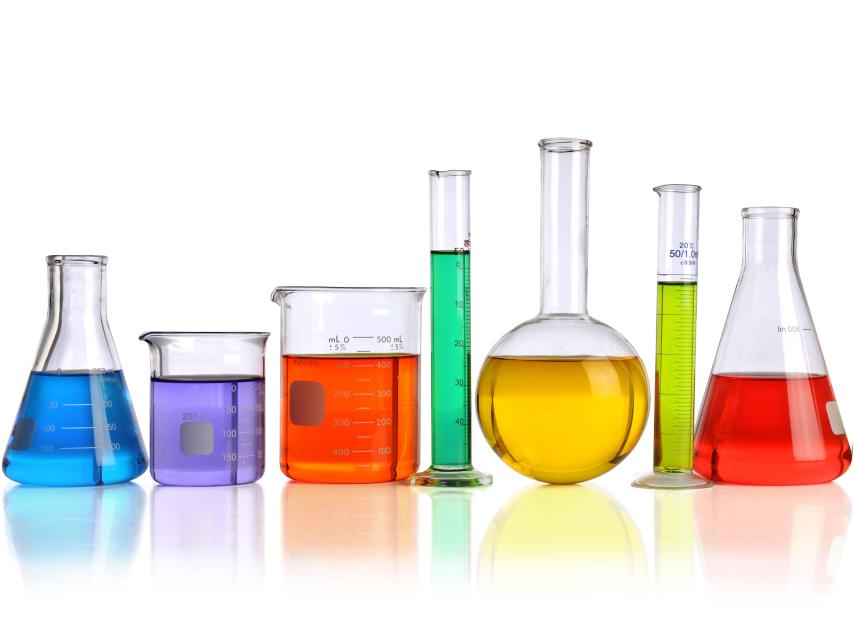Wine and Beer Inorganic Additive Analysis
The analysis of inorganic additives in wine and beer is a critical process that ensures product safety, compliance with regulations, and consumer confidence. Inorganic compounds such as sulfites, phosphates, calcium, and other minerals play vital roles in the production and preservation of alcoholic beverages. These elements can impact not only the taste and quality but also the stability of the final product.
In the wine sector, inorganic additives like sulfur dioxide are commonly used to prevent bacterial growth and oxidation during fermentation and aging processes. Similarly, calcium carbonate is often added to beer for carbonation purposes. However, excessive or improper use can lead to adverse health effects and regulatory non-compliance. Therefore, precise and accurate analysis of these compounds is essential.
Our laboratory utilizes state-of-the-art analytical techniques including inductively coupled plasma mass spectrometry (ICP-MS) and atomic absorption spectroscopy (AAS). These methods allow for the detection of even trace levels of inorganic additives. Our comprehensive approach ensures that each sample undergoes rigorous preparation steps, from proper sampling to precise instrumental analysis.
The results are reported according to international standards such as ISO 16857 and ASTM E2493. This ensures consistency and reliability across different laboratories worldwide. For our clients, we provide detailed reports along with recommendations for any necessary adjustments in the production process. Our goal is not only to meet regulatory requirements but also to enhance product quality.
Understanding the specific needs of your company, we offer tailored analytical services that cater to both routine testing and complex research projects. Whether you are a large multinational corporation or a small artisanal brewery, our expertise in inorganic additive analysis can help ensure compliance with local and international standards.
Eurolab Advantages
At Eurolab, we pride ourselves on offering exceptional quality assurance services tailored specifically for the wine and beer industry. Our team of experts has extensive experience in analyzing various types of inorganic additives within these beverages. With our advanced instrumentation and cutting-edge technologies, we provide reliable results that meet or exceed international standards.
We understand that every client has unique requirements when it comes to testing services. That's why Eurolab offers flexible service packages designed to fit the specific needs of each business. From routine quality control checks to detailed research studies, our team is committed to delivering accurate and timely results. Additionally, we provide comprehensive training sessions for your staff members so they can better understand how to interpret these tests effectively.
Our commitment to excellence extends beyond just providing top-notch analytical services; it also includes offering personalized support throughout the entire testing process. By working closely with you from initial consultation through final report generation, Eurolab ensures that all aspects of your project are handled efficiently and professionally. We take pride in building long-term relationships based on trust and mutual respect.
Choose Eurolab for all your wine and beer inorganic additive analysis needs. Let us help ensure that your products meet the highest standards of quality while remaining compliant with relevant regulations globally.
International Acceptance and Recognition
- ISO 16857: This international standard provides guidelines for determining sulfur dioxide content in alcoholic beverages, which is crucial for ensuring proper preservation of wines and beers.
- ASTM E2493: Developed by the American Society for Testing Materials, this standard specifies procedures for measuring trace metal elements like copper, lead, arsenic, and cadmium in wine. It helps prevent contamination issues that could arise during processing or storage.
- EN 15078: This European norm establishes requirements for labeling organic wines with respect to sulfite levels. Proper labeling is important for informing consumers about potential allergens present in the product.
- IEC 62494-2: While primarily focused on electrical equipment, this standard also addresses issues related to trace metal contamination from packaging materials used in alcoholic drinks. Compliance ensures that no harmful substances migrate into the contents during transportation or consumption.
The acceptance of our laboratory’s results is widespread across numerous countries including but not limited to Australia, Canada, EU member states, Japan, New Zealand, South Africa, and USA. Our commitment to adhering strictly to these international standards guarantees that any findings will be recognized globally without delay or dispute.
Environmental and Sustainability Contributions
The analysis of inorganic additives in wine and beer contributes significantly towards maintaining environmental sustainability practices within the industry. By ensuring proper usage levels, we help minimize waste generation associated with overproduction or unnecessary additions during manufacturing processes. Proper monitoring also aids in reducing energy consumption required for additional treatments aimed at removing unwanted compounds from finished products.
Furthermore, accurate detection of contaminants allows producers to adopt more sustainable practices such as recycling packaging materials and optimizing water usage throughout the supply chain. This not only reduces operational costs but also demonstrates a commitment to protecting natural resources for future generations.
Incorporating these analyses into everyday operations can lead to significant improvements in overall sustainability metrics. It enables companies to meet corporate social responsibility goals while simultaneously enhancing their reputation among eco-conscious consumers and stakeholders.





